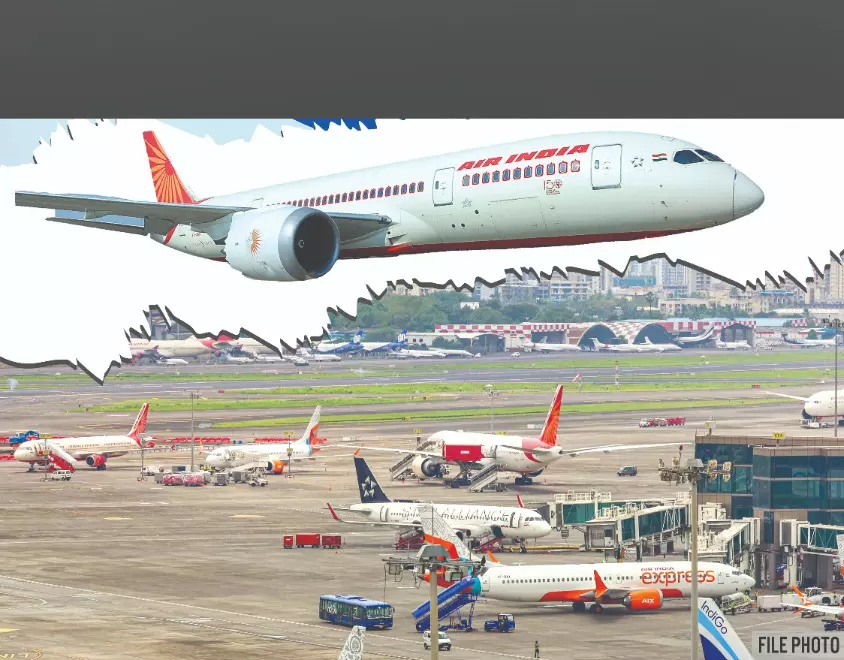DGCA finds no major flaws in Air India’s Dreamliner fleet

Mumbai: The Directorate General of Civil Aviation (DGCA) on Tuesday said it found no major safety lapses in Air India’s Boeing 787 Dreamliner fleet following enhanced checks initiated after last week’s deadly crash in Ahmedabad that claimed 241 lives.
The regulator had launched heightened surveillance of Air India’s 33 Dreamliners—a mix of 26 B787-8 and seven B787-9 aircraft—after the June 13 incident. “The recent surveillance conducted on Air India’s Boeing 787 fleet did not reveal any major safety concerns. The aircraft and associated maintenance systems were found to be compliant with existing safety standards,” the DGCA said in a statement.
A comprehensive review was conducted by DGCA officials with senior executives of Air India and Air India Express amid rising public concerns and the cancellation of 66 Dreamliner-operated flights between June 12 and June 17. During this time, 248 scheduled flights with B787s were operated.
While no immediate safety violations were identified, the DGCA drew attention to certain maintenance-related issues reported by the airline. Directions were issued to reinforce coordination between departments such as engineering, operations, and ground handling.
“The airline was advised to ensure the availability of adequate spare parts and to strictly follow regulatory provisions to avoid further passenger inconvenience,” the DGCA said.
To further streamline operations, the regulator has recommended a real-time defect reporting mechanism. This, officials said, would help operational units make quicker decisions and avoid cascading disruptions.
The review also addressed the broader operational challenges caused by the recent closure of Iranian airspace, which has forced Indian carriers to alter or cancel flights to Europe and the Gulf.
“The impact of the airspace closure was reviewed. Operators have been instructed to inform passengers promptly and adopt alternate routes to reduce delays,” the DGCA said. Both Air India and Air India Express operate over 1,000 flights daily. The aviation regulator reiterated the need for airlines to ensure passengers receive timely updates through all available communication platforms. Air India encountered a series of operational setbacks on Tuesday, disrupting international services and stranding passengers at multiple locations. Seven international flights were cancelled, while a San Francisco-Mumbai flight was forced to offload passengers in Kolkata after a technical issue was discovered during a scheduled stopover.
Six of the cancelled flights were linked to intensified inspections of the airline’s Boeing 787 Dreamliner aircraft by the Directorate General of Civil Aviation (DGCA). The seventh, from Ahmedabad to London Gatwick, was called off due to the non-availability of an aircraft.
In a statement issued earlier in the day, Air India said flight AI143 from Delhi to Paris was grounded after “mandatory pre-flight checks identified an issue which is being presently addressed.” The carrier cited night operation restrictions at Paris Charles de Gaulle Airport as a reason for the cancellation.
Affected passengers were offered hotel accommodation and the choice of either a full refund or complimentary rescheduling. “We are arranging alternate travel options for our guests at the earliest,” the airline noted. Other services disrupted included Bengaluru-London, London-Amritsar, Delhi-Vienna, Delhi-Dubai and Mumbai-San Francisco. The airline did not disclose specifics of the checks or how many aircraft were affected.
Meanwhile, the Ahmedabad-London Gatwick service—resumed only a day ago under a new flight code following the June 12 crash of flight AI171—was also cancelled. Air India clarified that this was due to aircraft unavailability and not a technical problem. “Alternative arrangements are being made for all impacted guests,” a spokesperson said.
The June 12 tragedy in Ahmedabad, where a London-bound Air India aircraft crashed shortly after take-off killing over 270 people, remains under investigation and continues to weigh heavily on the airline’s operations. In a separate incident, flight AI180 from San Francisco to Mumbai via Kolkata, carrying 211 passengers, encountered a mechanical snag at Netaji Subhash Chandra Bose International Airport during its scheduled halt. Passengers were asked to remain on board while engineers attempted to fix the left engine. A passenger who was on the flight described the sequence of events: “The crew told us the problem would be resolved in 25 minutes, but hours passed with no update.”
Another announcement was made at 4:20 am, giving a new estimate of 15–20 minutes, but the issue persisted. “Eventually, around 5:20 am, the pilot told us the problem couldn’t be resolved and asked everyone to deplane,” the passenger added. Scenes at the Kolkata airport were described as tense and chaotic. Many passengers had connecting flights from Mumbai and were seeking answers. “Some passengers were visibly upset. Others were relieved, saying it’s better to delay than risk a mishap,” said an eyewitness.
Sources at the airport said the airline is working on “special arrangements” to fly the stranded passengers to Mumbai. However, Air India has not released an official statement on the matter.
Flight AI180 had landed in Kolkata at 12:45 am after departing from San Francisco an hour behind schedule. The route currently includes a technical halt in Kolkata due to the closure of Pakistani and Iranian airspace amid the ongoing conflict involving Israel.
Following deplaning, passengers were moved through immigration and customs. Some were accommodated on alternate flights, while others were taken to hotels. “Most flights to Mumbai were full, and only a few passengers were able to get a seat immediately,” said one official at the scene.
The series of disruptions have added to the growing challenges for Air India as it navigates an intense phase of operational scrutiny, technical audits, and heightened passenger concerns.



